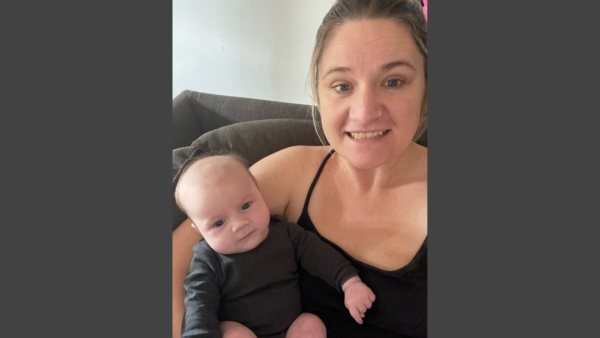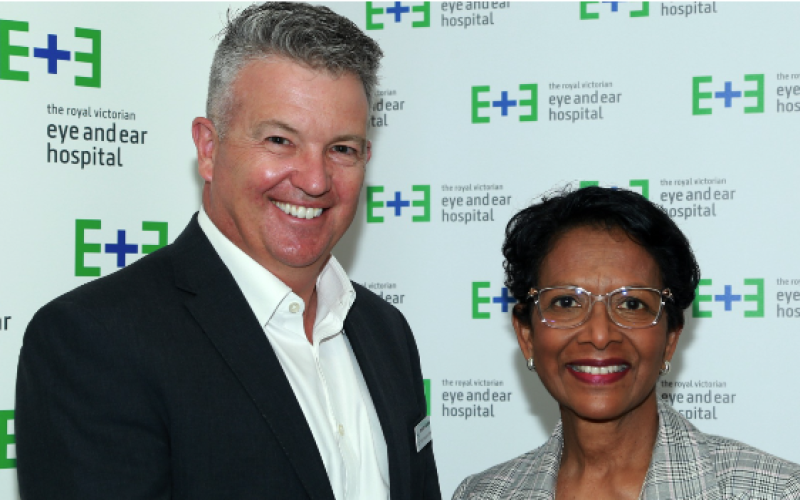Diabetic retinopathy affects 1 in 3 diabetic patients and if left untreated, can cause blindness.
In Australia, over 1.5 million people have diabetes and most will go on to develop the eye disease diabetic retinopathy which, without treatment, can cause vision loss and blindness. This National Diabetes Week, The Royal Victorian Eye and Ear Hospital recommends all Australians to get their eyes tested regularly, especially if they suffer from diabetes.
Diabetic retinopathy patient and new mum, Danyale King, was diagnosed with Type 1 diabetes in 2000 but did not experience diabetic retinopathy symptoms until 2016.
“The first time I experienced blurry vision I was scared, but not surprised. As a diabetic I knew the risk of developing diabetic retinopathy and the importance of catching it early,” explained Danyale.
Associate Professor Salmaan Qureshi, Head of the Medical Retina Unit at the Eye and Ear treated Danyale after her diagnosis and suggested a range of treatments including revolutionary eye injections.
These injections were the first of their kind to be administered in Australia and have since helped improve the sight of thousands of diabetic retinopathy patients at the Eye and Ear hospital.
Since diagnosis, Danyale has had 6 surgeries, laser treatment and injections in both eyes at the Eye and Ear which have prevented her from going completely blind.
Danyale has experienced remarkable results and is an excellent example of the importance of catching diabetic retinopathy early,” explained Associate Professor Qureshi.
“When I get flare-ups, it starts as a black spot in the eye and then my vision goes completely blurry, but the treatment works quite quickly. My eyesight usually returns to normal in a couple of days,” explained Danyale.
Danyale recently gave birth to her first child, daughter Sophie. Due to her diabetes, Danyale’s pregnancy was classified as high-risk, meaning laser and injection treatments were not recommended during this time. However, thanks to her treatment plan at the Eye and Ear in the lead-up to her pregnancy, Danyale was able to last the duration of her pregnancy without any diabetic retinopathy flareups and the need for treatment.
While there is no cure for diabetic retinopathy, catching it early can increase positive outcomes for patients and reduce the chances of going blind.
“If you have diabetes we recommend getting annual eye checks with your optometrist or ophthalmologist to help catch early symptoms of diabetic retinopathy,” explained Associate Professor Qureshi.
The injectable treatment model is now being used in the development of future biological therapies including mRNA and gene therapies.



